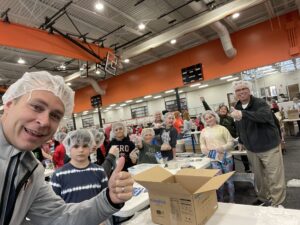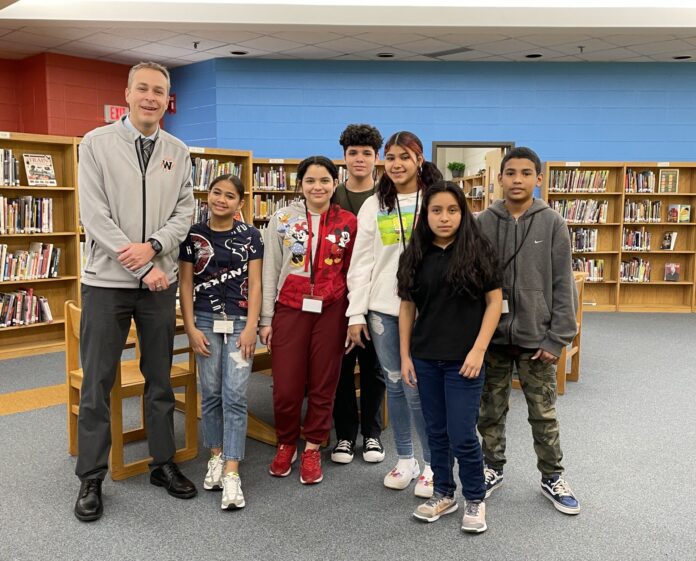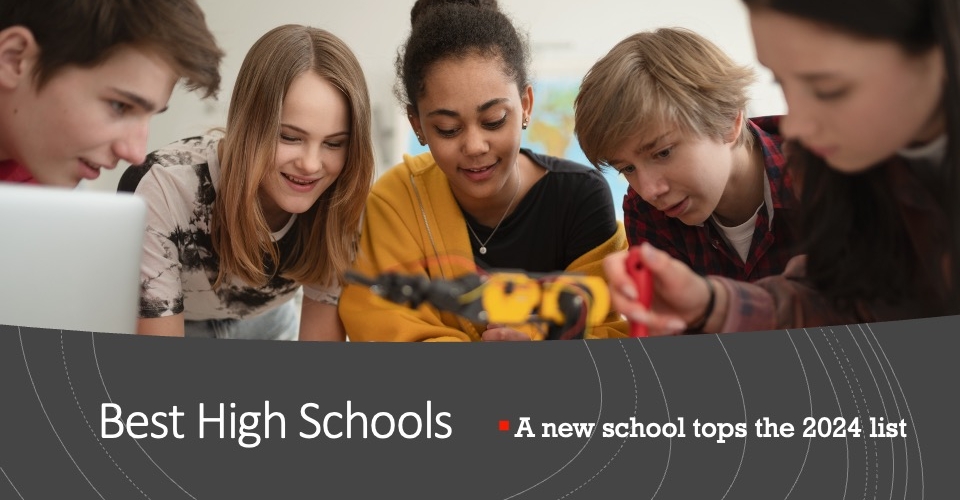“For me, my teachers were the ones that impacted me and really helped guide me and shape what I was going to become.”
As a Warsaw Community Schools graduate, he had aspirations of becoming a history teacher and a track coach. Years later, he would do exactly that in his hometown district, marking the beginning of his career in education. As fate would have it, he’s still there today, in his ninth year as superintendent serving the community that raised him.
Dr. David Hoffert, superintendent of Warsaw Community Schools, would tell you he has one of the most unique opportunities as a leader in education.
“I’m a fourth-generation Warsaw kid,” he says. “My children are fifth-generation Warsaw kids. My great-grandfather came to this town right after the Spanish American War. He had been over in Cuba and was originally from Ohio. When he came back he was looking for a place to settle and there was this place in northern Indiana and ended up there. Our family’s been here for a long time. It’s really unique to have a place-bound superintendent in a lot of ways. I think it’s been wonderful.”
His family’s love for their community, he adds, provides them with unique perspectives and long-lasting relationships.

“Our family loves this community,” he says. “My goal is that all my children graduate as Warsaw Tigers. We have relationships that go back years far before education and growing up. A number of our teachers and cabinet members played little league baseball with me or ran track with me in high school. You’ve created these bonds and these relationships and there’s a trust factor that happens in a place like Warsaw. There’s a heart for service inside this community.”
Maintaining those relationships is a top priority for Hoffert. Like many districts across the country, recruiting and retaining teachers has become increasingly difficult. But in order to give children the best education possible, it starts with equipping them with the highest-quality teachers.
“We’ve taken our pandemic funds and tried to invest them in unique ways for our students through our teachers,” he explains. “We’ve created a graduate program cohort. So we’ll have fully scholarshipped over 100 of our teaching staff to go ahead and earn their master’s degrees.”
Over the last six months, they’ve also begun paying for their instructional assistants’ degrees to transition into teaching.
“That goes with some of the hometown feelings,” he says. “If we have people that are working inside of our schools whose dream is to become a teacher and they want to impact our community, we’re going to find a way to be able to make that happen.”
Another unique challenge that’s interrupted many districts’ access to qualified teachers is being able to provide access to childcare for their staff. Warsaw Community Schools has been able to address this problem by creating its own—they currently have around 75 preschool-aged children in their daycare program, according to Hoffert.
“Our teaching staff is the key to student success,” he says. “If we can find ways, both financially and through unique benefits, to show that Warsaw Community Schools is the employer of choice and that education can be a lifelong profession, that’s probably our biggest goal.”
Speaking to his students, he describes them as incredibly resilient. While many districts across the U.S. are facing post-pandemic-related issues surrounding student behavior and mental health, Warsaw Community Schools is “back to business as usual.”
“Being back this year, you just felt this sigh of relief in a lot of ways,” he says. “Students are resilient. They’re quicker to transition. In a lot of ways, they’re back to normal. Actually, they’re back probably even more than normal. They’re excited to be at games and actively involved in our schools. We went out and found sponsors this year and made all sports passes free for all students. It’s amazing, just the numbers that we’re seeing show up to our games and events, because they want that social feel that goes with it.”
For Hoffert, 2023 is about taking the lessons learned from the pandemic and finding creative ways to carry them further. Virtual education, for example, has become a valuable tool for the Warsaw community.
“We learned a lot about what things like e-learning days should look like,” he says. “In-person education is definitely the best form of education but we know that there are some cases, like snow days… Up here in northern Indiana, we get a lot of snow. So how can we utilize some of those things that we learned to create a synchronous atmosphere when it comes to student learning on days that might not have otherwise had a great educational value to them?”
“During the pandemic, the focus shifted to keeping doors open,” he adds. “Now that you are coming out on the other side and looking at those initiatives, the question then becomes, ‘How do we make sure that we’re pushing those forward for student learning and making our atmosphere is there?’”
As his district carries on through the 2023 academic year, Hoffert says he will continue to focus on what makes his community so special: the people.
“Our mission statement is unique because it ends with the words, ‘inspiring dreams and enriching the lives of other people,'” he says. “For our community, that’s something that is critical. It’s not just the education, but it’s finding what you do with that education. If our students are reaching their dreams and they see a bigger purpose for that in making our community a better place, we feel like we’ve won.”
More from DA: Leadership series: To this superintendent, every student has equal potential










